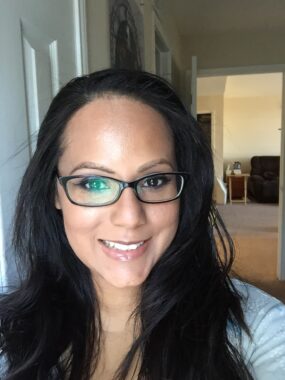My daughter helps me understand what I’ve learned from PF
As my caregiver, her responses to a key question have led me to an answer, too

Despite having a support group and talking with others who have the same condition, I haven’t gleaned everything I need to know about pulmonary fibrosis. I’m still walking in the shadows of this disease, trying to find a semblance of my pre-diagnosis self.
Someone in my support group asked, “What has having a rare or chronic illness taught you?” Most of us have been asked it at least once. I never really thought much about it before, but the way it was posed had an impact on me and made me give it some thought. Has my illness taught me, or has it simply burdened me?
I know it hasn’t taught me patience, because mine wears thin quite often. Has it taught me purpose? If it had, would I be pondering this question? In my last column I wrote about having a purpose, which, by the way, I’m still trying to figure out. Every time I think I have a hold on what I’ve learned, I end up guessing and possibly missing the point.
Maybe seeing it from someone else’s perspective would help me, so I decided to ask my daughter, Jessyka, what she thought about the question, since she’s taken on the role of my caregiver. I was taken aback by her response: “My mother’s illness has taught me that getting a diagnosis for a rare disease is a battle. Those with a rare disease have already fought half the battle before they begin the next battle of learning to make accommodations for their disease.”

My daughter and caregiver, Jessyka Nikol. (Courtesy of Ann Reynoso)
I’d forgotten all the times Jessyka had to fight right alongside me. She was the one who encouraged me to continue advocating for myself, and when I grew tired of fighting, she kept pushing and encouraging me to do it. She’d become part of my cheering section. Little does she know that I’m also on the sidelines cheering her participation in the caregiving community.
The second part of her answer hit me hard. “I’ve also learned that no one wants to know the details of being a caregiver,” she said. “Some give me accolades while employers are more concerned with how much time my caregiver role will take away from work. Very few people are interested in my day-to-day existence as a caregiver. It’s an identity I often must put aside to make others feel comfortable around me.
“No one wants to know that as I play the role of a carefree young woman, I’m also thinking about the last time I checked if the O2 [oxygen] canisters have been filled or planning a disability-friendly outing for my family,” she continued. “The caregiver role is always a part of me, but the social arena is quite uncomfortable with this designation and is quick to ignore this part of my identity.”
Her answer made me realize that she too struggles, the same if not more than I do, when it comes to learning something from this illness.
I remember being a caregiver to my grandmother when she was struggling with dementia. I remember the feeling of having lost who she was before the disease took her away from us. As a caregiver, I felt scared and alone, but my memories of those efforts for her gave me solace as I thought of my daughter.
For now, while I still have most of my independence, I’ll give my daughter full support and comfort. I want her to know what an honor it is to have her care for me the way she does. She has always been my source of strength from the moment she was born and will continue to be until my last breath.
Thinking now about the question “What has having a rare or chronic illness taught you?,” I can say it’s taught me to stop being selfish, stop thinking of only myself, and remember that those who take time out of their lives to look after us deserve not to be ignored, but honored and praised.
If you’re a caregiver and need help or support, resources might be available in your local community.
Note: Pulmonary Fibrosis News is strictly a news and information website about the disease. It does not provide medical advice, diagnosis, or treatment. This content is not intended to be a substitute for professional medical advice, diagnosis, or treatment. Always seek the advice of your physician or other qualified health provider with any questions you may have regarding a medical condition. Never disregard professional medical advice or delay in seeking it because of something you have read on this website. The opinions expressed in this column are not those of Pulmonary Fibrosis News or its parent company, Bionews, and are intended to spark discussion about issues pertaining to pulmonary fibrosis.








Kathryn Maguie
Very good article my caregiver is my husband and daughter and I thank God for them everyday.